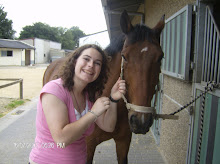Quality time is giving someone your undivided attention. I don’t mean sitting on the couch watching television. I mean sitting on the couch with the TV off, looking at each other and talking, and giving each other your undivided attention. For some people, quality time is their primary love language, and if you don’t give them quality time, they will not feel loved. Is it possible that your spouse’s primary love language is quality time?
Listen for Clues
Quality time is a powerful emotional communicator of love. One medicine does not cure all diseases. Just as one love language does not communicate emotionally to all people. If you give your spouse affirming words; If you express love by acts of service; If you touch them affectionately; and they still complain, “You don’t ever have time for me. We used to do things together. Now you are always too busy or too tired,” they are telling you that their primary love language is quality time.
The Essence of Quality Time
A central aspect of quality time is togetherness. I do not mean proximity. Togetherness has to do with focused attention. A husband who is watching sports on television while he talks to his wife is not giving her quality time, because she does not have his full attention. A husband and wife playing tennis together, if it is genuine quality time, will focus not on the game, but on the fact that they are spending time together.
Dialects of Quality Time
Like words of affirmation, the language of quality time also has many dialects. One of the most common dialects is that of quality conversation. By quality conversation, I mean sympathetic dialogue where two people are sharing their experiences, their thoughts, their feelings, and their desires in a friendly, uninterrupted context. If your spouse’s primary love languages is quality time, such dialogue is crucial to his or her emotional sense of being loved. Sit down. Ask questions, and listen.
Tips for Keeping the Love Tank Full
I want to conclude by giving you four tips on how to have a quality conversation with your spouse:
1. Maintain eye contact when your spouse is talking.
2. Don’t listen to your spouse and do something else at the same time.
3. Listen for feelings. Ask yourself, “What emotion is my spouse experiencing?”
4. Refuse to interrupt. Such interruptions indicate, “I don’t care what you are saying; listen to me.”
Such active listening will fill the love tank of the person whose primary love language is quality time.
